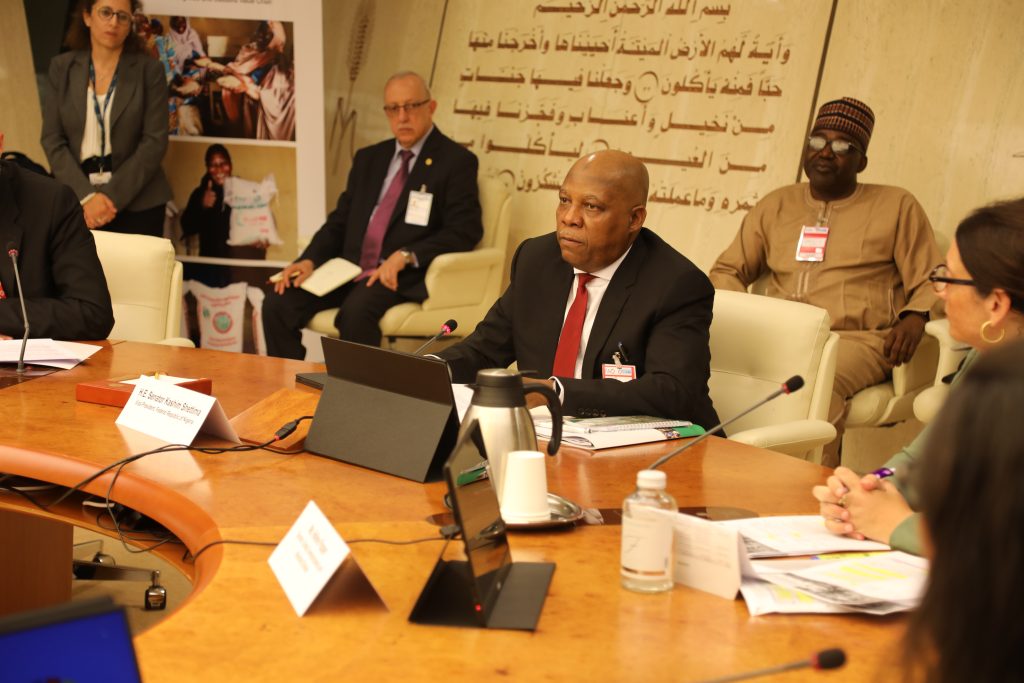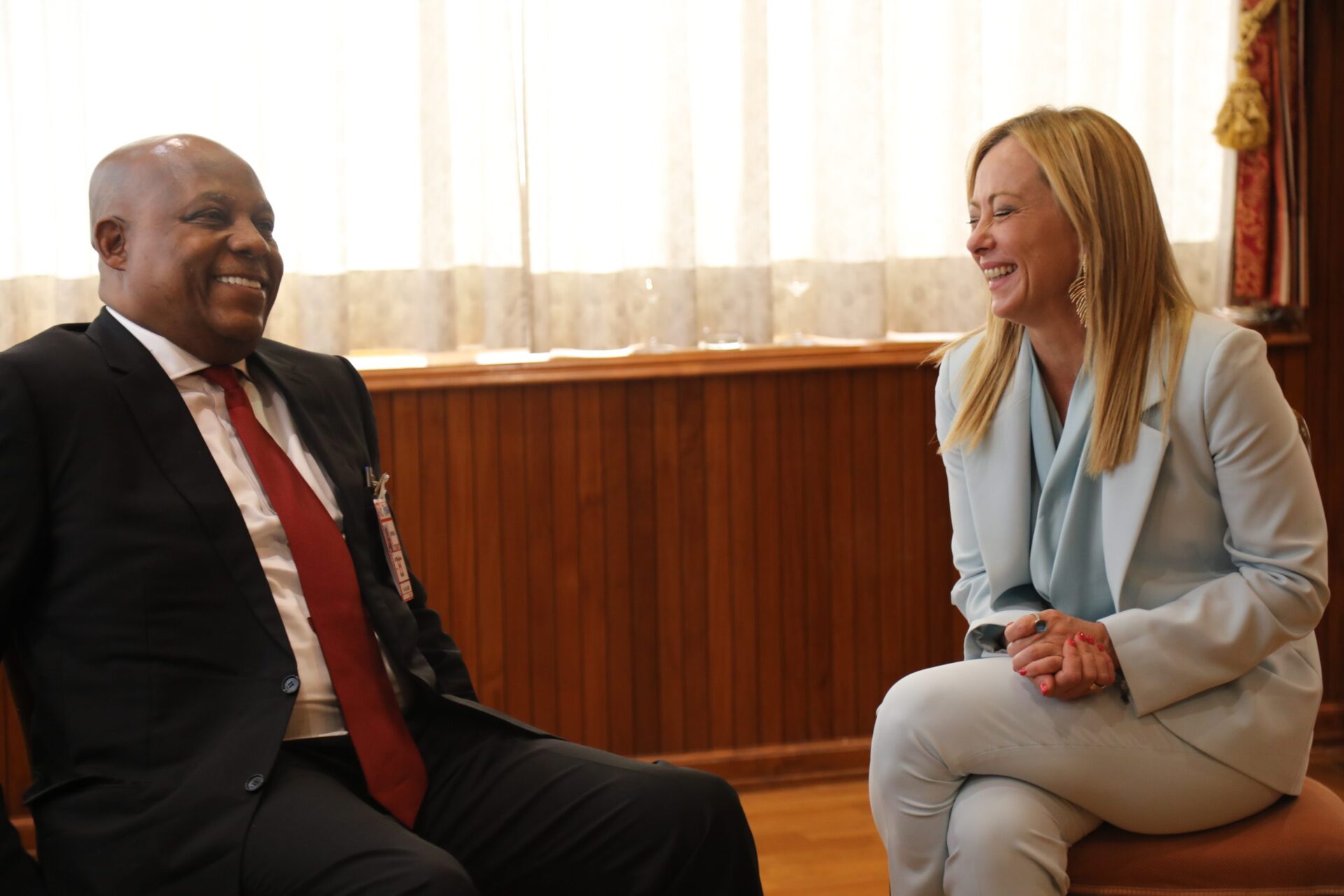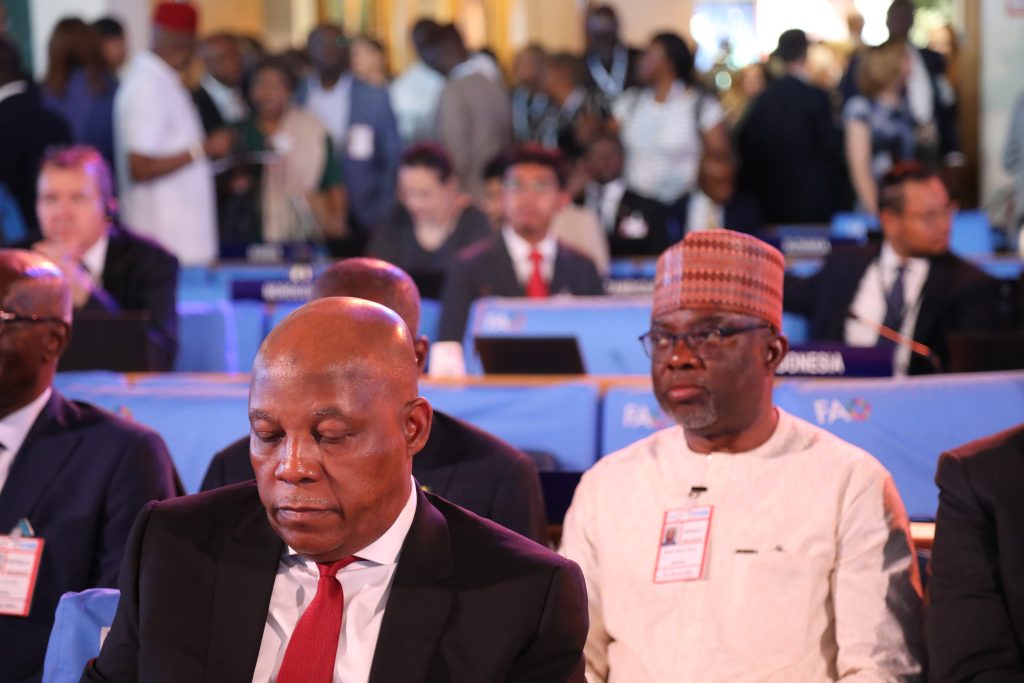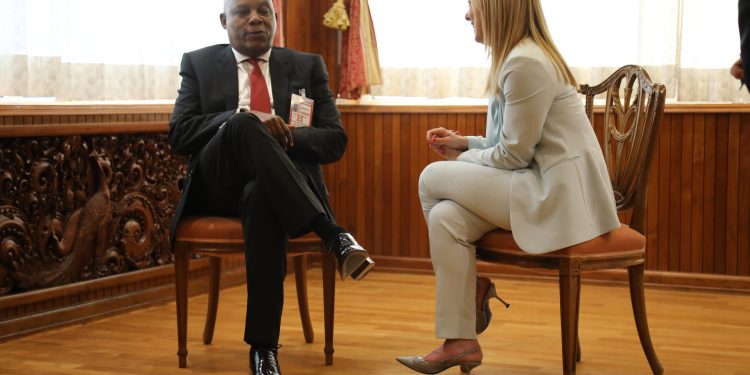Nigeria, a nation of immense potential and resilience, is currently facing economic hardships that have prompted many of its citizens to seek opportunities abroad. The complexities underlying this migration trend are rooted in multifaceted economic, social, and political factors, necessitating a comprehensive approach to address the underlying challenges.

Against this backdrop, the UN Food Systems Summit +2 Stocktaking Moment held in Rome, Italy, from 24th to 26th July 2023, https://www.unfoodsystemshub.org/fs-stocktaking-moment/provided a pivotal platform for international collaboration and dialogue on sustainable development and food security. Notably, this summit witnessed the distinguished presence of His Excellency Kashim Shettima, Vice President of the Federal Republic of Nigeria, and the esteemed Nigeria Ambassador to Italy, His Excellency Mfawa Omini Abam, alongside the dedicated Nigeria Embassy journalist in Rome, Lucky Omosigho.


While such diplomatic engagements fostered discussions on international collaboration, it is imperative to recognize the importance of leveraging these opportunities to address the fundamental economic challenges within Nigeria. This requires a nuanced approach involving collaborative efforts with nations such as Italy to create sustainable economic growth and opportunities within Nigeria.
In this context, diplomatic discussions between the Nigerian delegation and Italian counterparts, including the meeting with Prime Minister Giorgio Meloni, underscored the shared commitment to exploring collaborative initiatives aimed at fostering economic prosperity within Nigeria. These discussions encompassed potential partnerships in trade, investment, technology transfer, and capacity building, reflecting a commitment to addressing the root causes of economic hardship and fostering inclusive economic growth.
Moreover, it is essential for leaders and stakeholders to collaboratively develop and implement comprehensive strategies focused on economic reforms, infrastructure development, and the creation of an enabling environment for entrepreneurship and investment. Embracing initiatives designed to enhance education and skill development, aligned with the needs of a dynamic global economy, can equip Nigerians with the tools and knowledge to contribute to and benefit from economic growth within the country.
As Nigeria navigates its economic challenges, it is incumbent upon leaders and stakeholders to harness the insights and collaborations stemming from international engagements such as the UN Food Systems Summit to drive sustainable and inclusive solutions. By fostering a spirit of diplomatic cooperation and collaboration, Nigeria and its partners can work to address economic hardships, create opportunities for prosperity, and lay the foundation for a brighter future for all Nigerians.
In conclusion, the UN Food Systems Summit served as a catalyst for fostering diplomatic cooperation and dialogue, offering a pathway to address economic challenges and create opportunities for sustainable economic growth within Nigeria. By embracing a spirit of collaboration and mutual understanding, Nigeria and its international partners can work together to address the root causes of economic hardship and pave the way for a future of shared prosperity and opportunity.









